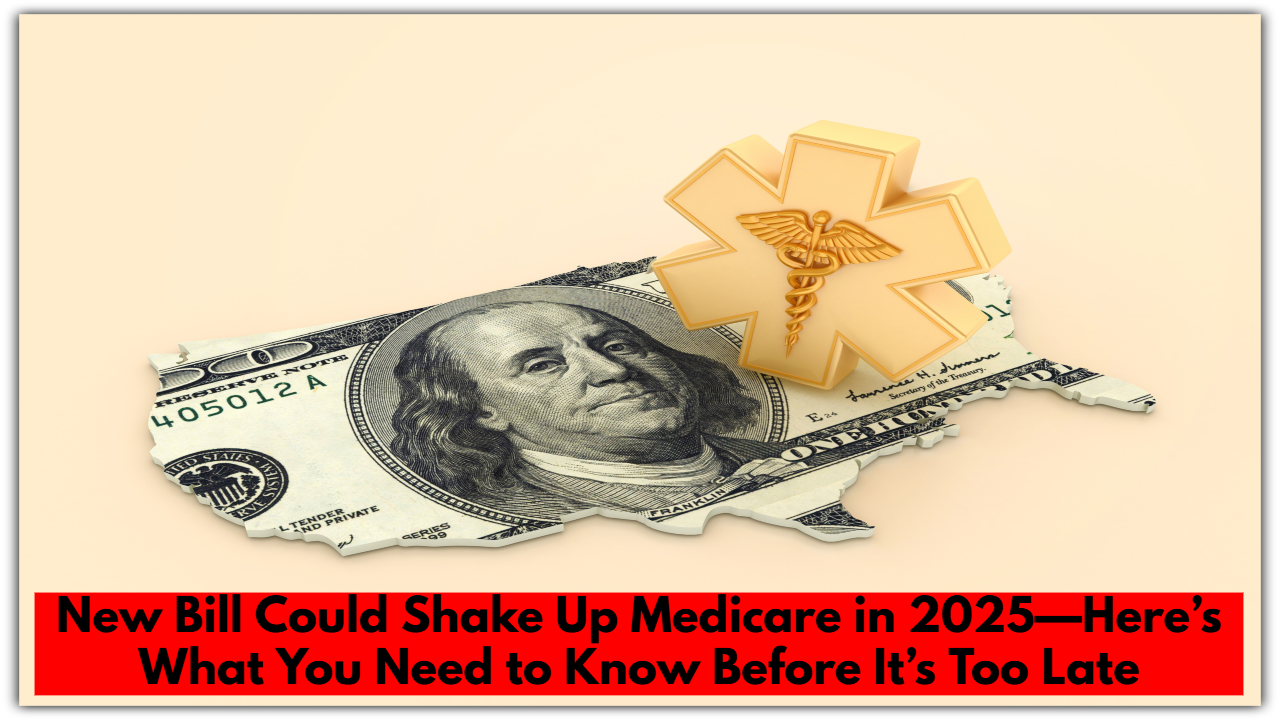New Bill Could Shake Up Medicare in 2025—Here’s What You Need to Know Before It’s Too Late
So, you might’ve seen something on the news (or maybe on your Facebook feed) about a big new bill that could shake things up—especially when it comes to Medicare. It’s called the “One Big Beautiful Bill”—yes, that’s seriously the name—and a lot of people are wondering:
“What does this actually mean for me and my healthcare?”
Don’t worry, I’ve got you. Let’s walk through it together—no confusing language, just the real stuff you need to know.
First Things First: What Even Is This Bill?
Basically, it’s a giant piece of legislation that just passed the U.S. House and is heading to the Senate. Some folks are calling it a win for personal freedom and financial reform. Others are sounding the alarm about what it could mean—especially for Medicare and healthcare.
So, let’s break it down into the stuff that matters most.
1. Could Medicare Be Cut? Unfortunately, Yeah
This is the part that’s making people nervous.
If this bill becomes law and Congress doesn’t take extra action, Medicare could lose about $500 billion over the next 10 years.
How? There’s a rule called PAYGO (short for “Pay As You Go”). It says that if a bill adds a lot to the national deficit, the government has to cut spending to balance it out. And guess where they usually cut first? Yep—Medicare.
So while nothing’s set in stone yet, this could mean:
-
Doctors and hospitals might get paid less by Medicare.
-
That could lead to fewer providers accepting Medicare—or longer wait times.
-
And you could see more out-of-pocket costs down the road.
Scary? A little. But again, this only happens if PAYGO kicks in and Congress doesn’t block it.
2. Good News for People Who Use HSAs
If you’re still working but also Medicare-aged, this part might be helpful.
Right now, once you sign up for Medicare Part A, you’re not allowed to contribute to a Health Savings Account (HSA) anymore.
But this bill would change that—finally.
It would let people on Medicare (or close to it) keep putting money into their HSAs. Even better:
-
The contribution limits would go up, especially for folks making under $75K.
-
Married couples could “combine” their catch-up contributions, which could help save even more.
So yeah, this is a win for people trying to stash away money for future medical costs.

3. Rural Hospitals Might Get a Second Chance
If you live in a small town, you know how tough it is when your hospital shuts down. It’s not just inconvenient—it’s dangerous.
This bill would let certain rural hospitals that closed between 2014 and 2020 reopen as something called Rural Emergency Hospitals. That means they could start providing care again, with some financial help from the government.
In short? More access to care for people who’ve been left hanging.
4. Fighting Medicare Fraud with Artificial Intelligence
Kind of cool, honestly—this bill includes a plan to use AI and data tools to spot waste and fraud in the Medicare system.
$25 million would go to tech firms and analysts to help the government catch mistakes and overpayments before they happen. If it works, this could save money and maybe even make the system more efficient.
(As long as it’s done carefully and not at the expense of real patients.)
5. Stricter Rules on Who Qualifies for Medicare Based on Immigration
This part is a little controversial. The bill would limit Medicare access to:
-
U.S. citizens
-
Legal permanent residents (aka green card holders)
-
And a few others under special agreements
Anyone without proper status would be left out. Supporters say this is about cost control. Critics worry it’ll block healthcare access for people who’ve lived and worked here for years.
So, Is This Good or Bad for Medicare?
Honestly? It’s a mixed bag.
-
If you’re working and want to keep using an HSA—there’s good news.
-
If you’re in a rural area and your hospital closed—there’s hope.
-
But if you rely heavily on Medicare now, especially for long-term care, the potential cuts are concerning.
Nothing’s final yet. The Senate still has to weigh in, and Congress could still prevent the cuts from taking effect. But it’s worth keeping an eye on.
This bill is a big deal. And if you’re on Medicare or will be soon, it could change things for you—some for better, some maybe not.
Right now:
-
There’s no immediate change to your Medicare benefits.
-
But there’s a very real risk of cuts in a couple of years, unless Congress steps in.
-
Some parts—like the HSA fix and help for rural hospitals—could be a genuine step forward.
If you’re feeling confused or overwhelmed by it all, you’re not alone. These bills are long and complicated—but what matters most is how they affect people like you.
And that’s exactly what I’ll keep breaking down.


Comments are closed, but trackbacks and pingbacks are open.